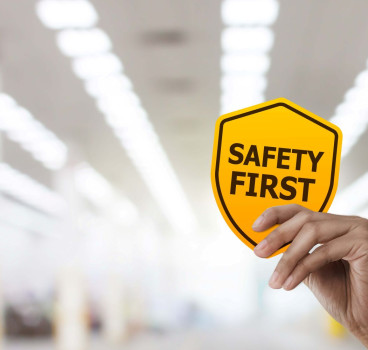Flushing out school bullies
Recent reports confirm that bullying remains an issue in school washrooms and human nature being what it is; it is unlikely that such facilities will ever be completely safe, writes Sam Saunderson, Project Consultant at washroom design and refurbishment specialists, Interfix.
To counteract this growing menace, the introduction of unisex sanitary areas in schools has been found to be effective for a number of reasons. For instance, facilities used by both genders attract more people, making it more likely instances of bad behaviour will be witnessed and reported. There's also the age factor to consider: youngsters become more self-conscious about their appearance and development in the early teenage years, meaning they are less likely to loiter in washrooms used by members of the opposite ***.
Unisex toilets are a relatively recent addition to UK schools, with the first one being opened in 2000 at a secondary establishment near Manchester. Naturally, not every parent or pupil is open to the idea of genders sharing the same washroom space. In such cases, schools have compromised by labelling cubicles ‘male' and ‘female', but kept the washbasin area mixed.
Space saver
Aside from combating the very serious threat of bullying and antisocial behaviour, unisex toilets are also seen as a solution at schools where pupil intake has increased, but financial constraints mean extending buildings to accommodate the additional numbers is out of the question. Unisex toilets represent a more efficient use of space, with existing walls and partitions no longer required to separate facilities.
In our experience at Interfix, modern designs and greater openness in mixed and non-mixed washroom areas has also led to a significant reduction in incidences of vandalism, with the additional bonus being modern washrooms have become more hygienic as a result.
This was another major concern in 2010 cited by the London School of Hygiene and Tropical Medicines, which claimed that our children were in real danger due to poor facilities and fears of lingering too long in washrooms.
The government response at the time was typically understated, with the Department of Education saying: "We urge schools and academies to take a common sense approach to keeping safe". In spite of this, academies across the country have obviously got the message and washrooms are now much better places – and not before time.
Summer refurbishment
Cleeve Park School in Sidcup, Kent provides an example of how unisex washrooms can help create a more welcoming, less intimidating environment. Interfix designed and installed a single unisex facility as part of a major refurbishment of its students' sanitary facilities..
Having demolished the existing male and female toilets, the remodelled area required new flooring and a boosted water system as well as modern, stylish fixtures and fittings. With years of experience in washroom design and refurbishment, Interfix was selected to carry-out the renovation during the school holidays.
To encourage a sense of wellbeing and create a user-friendly environment within the new 150m2 washroom area, open access was provided via a school corridor. Increasing the sanitary area's visibility allowed staff to spot instances of bullying or antisocial behaviour more easily.
To deter vandalism, a laminate ceiling was installed in the toilets, with sensors fitted above cubicles to alert staff to smoking. The cubicles, made of durable, solid-grade laminate, included a 20mm gap at the base to help eliminate episodes of antisocial behaviour.
With the long-term performance of the washroom very much at the forefront of its design, circular, stainless steel wash troughs – capable of withstanding wear-and-tear – were specified. These were augmented by sensor-controlled taps; an energy-saving measure which will not only help the school cut its energy costs, it will reduce its long-term carbon footprint.
Having specified product-type and quantity, Interfix completed the washroom's full refurbishment within the school's strict six-week deadline to the client's full satisfaction. Cleeve Park School was presented with a safe, stylish unisex washroom for the start of the new term. Its user-friendly layout and the durability of its high-quality features ensuring it retains a comfortable, non-threatening air for a long time to come.
As unisex washrooms become more prevalent in our everyday working and social lives, lingering opposition to their appearance in schools will begin to dissipate. There is no miracle antidote for bullying or antisocial behaviour in schools; it's existed since time immemorial. However, it's refreshing to see local authorities fighting back and employing new initiatives in an attempt to combat an age-old problem. Early indications show, although controversial, mixed sanitary areas are proving a positive step in the battle to beat the bullies.
Additional Blogs

4 Must-Follow Health and Safety Habits for the Modern Jobsite
The risks in modern jobsites are constant. Falls, chemical exposure and heat illnesses continue to injure workers across construction and related industries each year. The best way to reduce those...
Read moreDesigning multi-functional outdoor spaces through the power of Play Trees
Outdoor spaces are increasingly expected to do more than simply look good. They must invite interaction, support wellbeing, encourage movement and foster connection across generations. In schools,...
Read more

4 Ways Resilient Construction Gets it Right and 4 Ways It’s Still Falling Short
Climate change is becoming increasingly disruptive as the weather becomes stronger and more unpredictable. These circumstances are constantly pressuring the construction industry, which has had to...
Read more